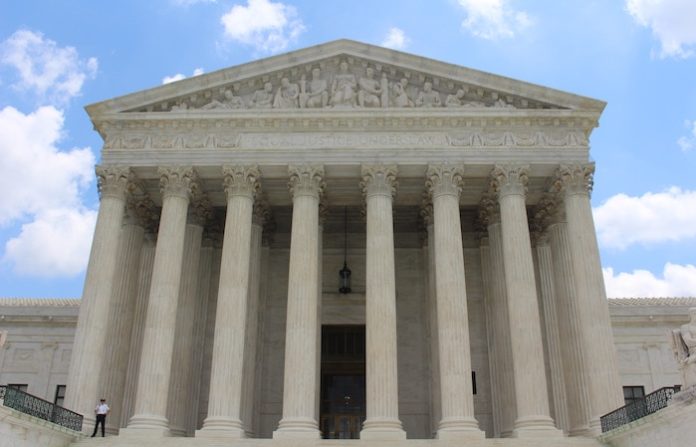Big-Box chain Total Wine scored a large victory today when the U.S. Supreme Court ruled against a Tennessee law that requires someone live in the state for two years before becoming eligible for a liquor license.
In a 7-2 decision, the Supreme Court found that, under the U.S. The Constitution’s commerce clause, Tennessee was unfairly discriminating against businesses with this residency law.
“Because Tennessee’s two-year residency requirement for retail license applicants blatantly favors the state’s residents and has little relationship to public health and safety, it is unconstitutional,” Justice Samuel Alito Jr. wrote for the majority.
The 21st Amendment, which grants states the ability to decide their own laws regarding public health and safety matters related to alcohol, does not include leeway for residency requirements, Alito Jr. added, because it’s “not a license to impose all manner of protectionist restrictions on commerce in alcoholic beverages.”
The case reached the Supreme Court after Total Wine challenged the Tennessee law and won similar decisions in lower courts, allowing the chain to open a superstore in Knoxville in 2018. Opposing these rulings, and fighting against Total Wine’s argument in the Supreme Court, was the Tennessee Wine and Spirits Retail Association, plus 34 other states that have similar residency laws.
The end result of this ruling will likely be an influx of Big Box liquor stores opening in Tennessee and other states that can no longer maintain their residency laws. The ruling also has implications for businesses that want to ship wine and liquor to customers across state lines.
“With this decision, the effort to modernize and bring fairness to the distribution and wine shipping laws of the states begins in earnest,” said Tom Wark, executive director of The National Association of Wine Retailers, in a release. “While we expect the opponents of free trade and supporters of protectionism to fight this evolution in the American marketplace, we are equally confident that this Supreme Court decision will lead to greater access to the hundreds of thousands of wines many consumers do not currently have access to due to protectionist wine shipping laws.”
“Most important is the Court’s decision that the non-discrimination principles laid out in the Supreme Court’s 2005 Granholm v. Heald decision overturning bans on winery shipping also apply to retailers,” Wark added. “This determination by the Court is in direct contradiction to claims by alcohol wholesalers and retailers, courts and other commentators that states may discriminate against out-of-state retailers. Today the Court said they may not.”
In dissenting, Justice Neil Gorsuch wrote that residency laws help increase “the odds that retailers will have a stake in the communities they serve.”
Also arguing on the side of Total Wine was a family that purchased a Memphis liquor store after moving into Tennessee, because the state’s climate was better for the health of their disabled daughter.




